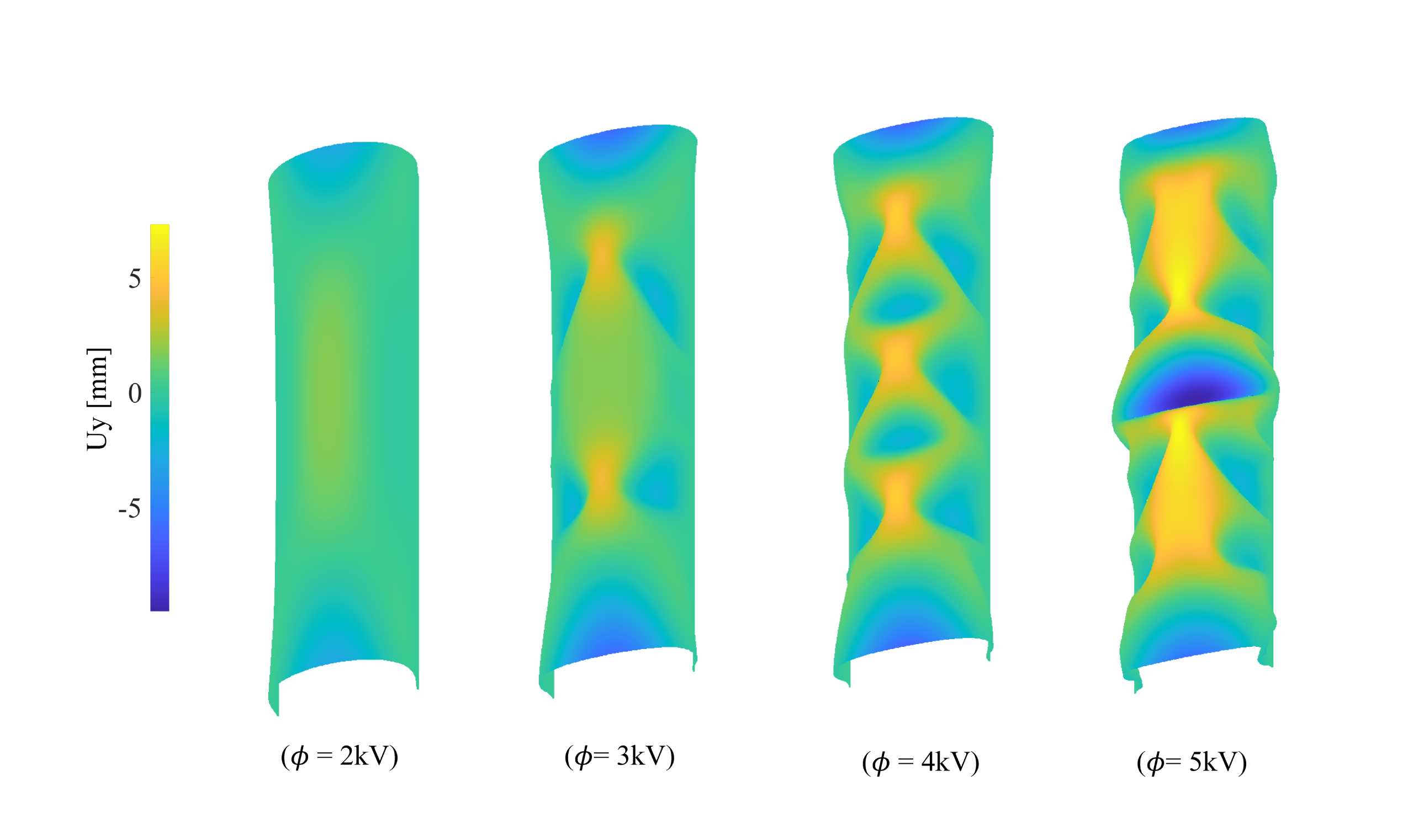Project Overview
The ADEM (Adversarial Deep Energy Method) Framework represents a novel computational approach for solving complex saddle point problems in dielectric elastomers. By leveraging adversarial training techniques, this framework provides robust solutions for challenging computational mechanics problems.
Goals
- Advanced Problem Solving: Develop computational methods for complex saddle point problems in materials science
- Adversarial Training: Apply adversarial machine learning techniques to computational mechanics
- Robust Solutions: Create algorithms that provide stable and accurate solutions for challenging problems
- Practical Applications: Enable simulation and design of advanced dielectric elastomer systems
Key Achievements
- Published in Computer Methods in Applied Mechanics and Engineering (2024)
- Developed novel adversarial training framework for computational mechanics
- Demonstrated superior performance on challenging saddle point problems
- Created efficient algorithms for dielectric elastomer simulation
Team Members
Principal Investigator
- Prof. Do-Nyun Kim - Applications and Validation
Collaborators
- Dr. Seung-Woo Lee - Co-Lead, Algorithm Development
- Dr. Chien Truong-Quoc - Co-Lead, Theoretical Framework
- Prof. Youngmin Ro - Computational Implementation
Students
- Graduate students working on extensions and applications of the ADEM framework
Publications
-
Lee, S.W., Truong-Quoc, C., Ro, Y., Kim, D.N. “Adversarial deep energy method for solving saddle point problems involving dielectric elastomers.” Computer Methods in Applied Mechanics and Engineering (2024). DOI: 10.1016/j.cma.2024.116825
*Joint first authors
Future Directions
- Extension to other types of material systems
- Integration with experimental validation
- Development of real-time simulation capabilities
- Applications in soft robotics and flexible electronics
🔍 Search for ADEM Framework related papers on the Research page
